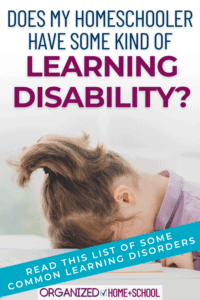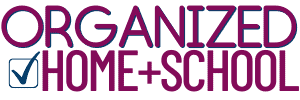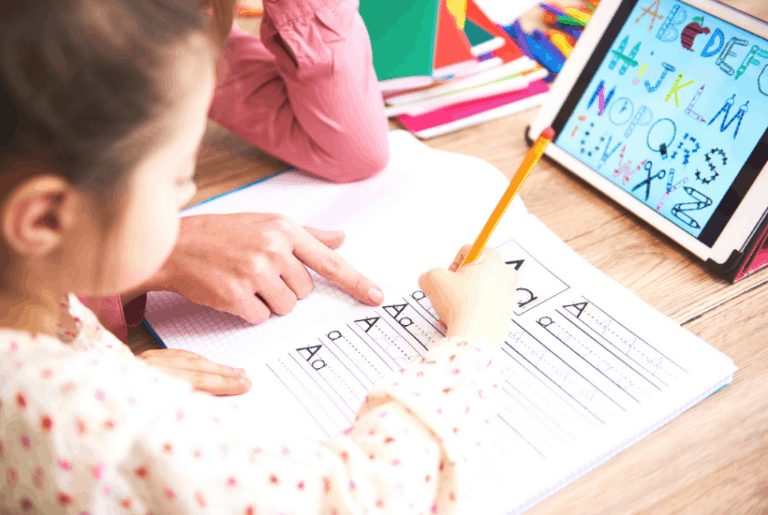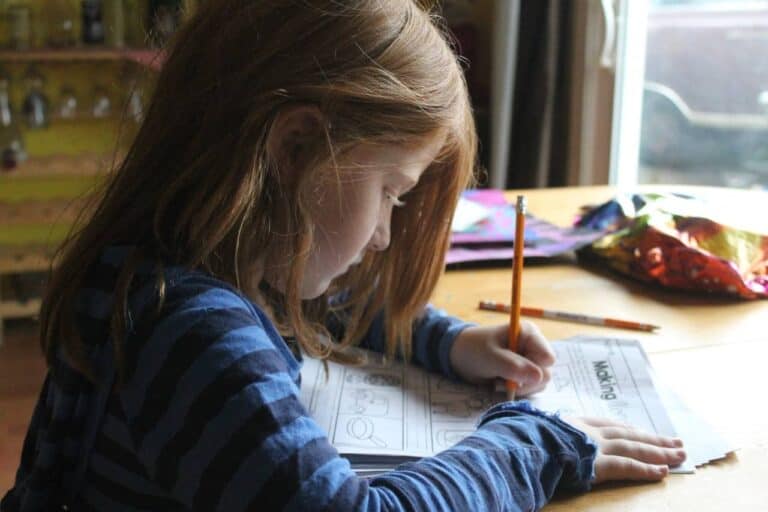Homeschool Mom’s Guide to Different Types of Learning Disabilities
You’ve been noticing that something is off with your child’s learning style. Maybe they’re not grasping the concepts you teach. Or can’t articulate back what they’ve learned. Possibly they don’t cooperate during homeschooling, are easily distracted, or even flat out angry. You’re wondering if your child is struggling with some sort of disorder, but you’ve heard of so many different types of learning disabilities that you don’t know what to do.
You’re not alone. Many homeschool moms have been in the same spot and felt overwhelmed with the task of figuring out what’s up. And how to best help your child thrive.
I’ve put together a quick summary of the most common childhood learning disabilities and special needs diagnoses. Hopefully, this list will help you understand what type of learning disability you may be dealing with and what it affects.
A few very important points first:
- Remember is that any diagnosis simply means your child is different, NOT less. Using labels can help us figure out what kind of extra help our child needs but does not need to define them (or us as moms).
- It’s very common for a child to have comorbid conditions, meaning that often one diagnosis accompanies several others and the symptoms also tend to overlap.
- Keep in mind that this is just an overview to make you aware. Be sure to consult with your doctor for a tried and true diagnosis.
- Even though your child learns differently and may need some special accommodations, you are still an amazing mom! Don’t forget that you know your child best and are his biggest fan. Seeking answers is the best thing you can do for him right now.
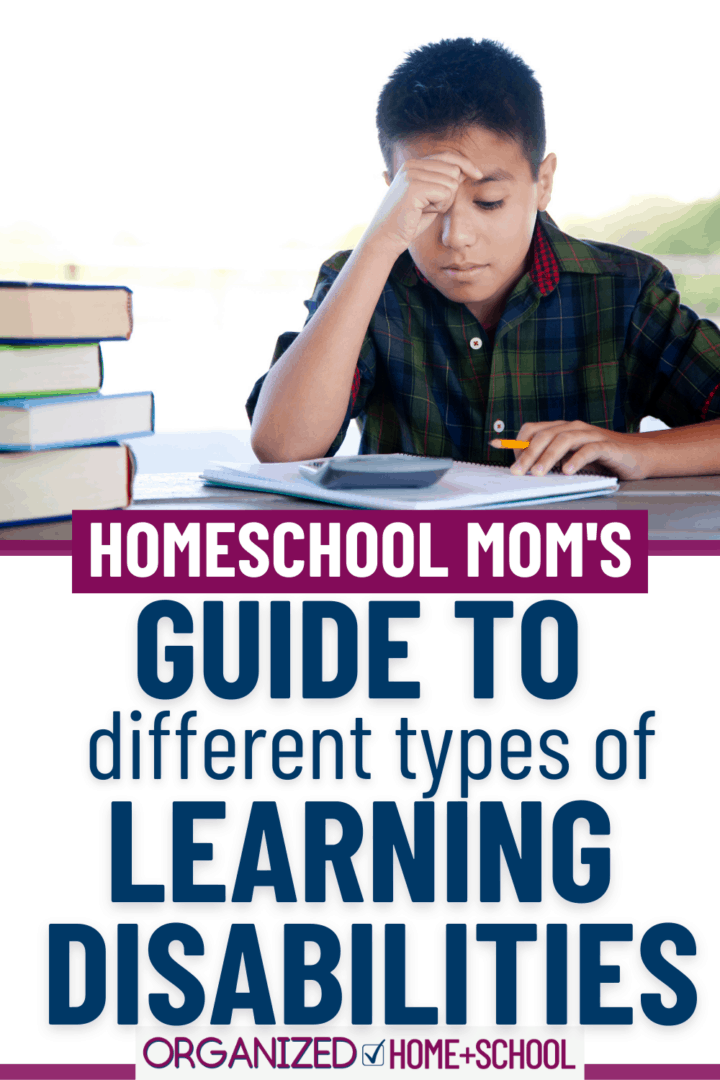
Different Types of Learning Disabilities Children Struggle With
1) Apraxia of Speech: This refers to your child’s speech. It can have a wide range of Verbal distortions, delayed speech, limited words, difficulty with syllables, verbal inconsistencies, separating syllables, distorting sounds.
2) Attention Deficit Hyperactivity Disorder ADHD/ADD: Children with an inability to sit still, wait their turn, follow directions, and focus on the task at hand are often diagnosed with either ADD or ADHD. There are 3 main categories- inattentive, hyperactive, and impulsive.
3) Autism(ASD): This is neurological and is a spectrum disorder, and it means that your child may have different challenges and unique personality traits from high functioning where they need minimal support to severe autism where your child may be nonverbal, their social, communication, and repetitive behaviors may impair everyday life.
4) Dyscalculia: a math disorder, sometimes called “math dyslexia. It shows in the form of lack of number sense, difficulty learning basic math facts, understanding money or telling time. Children might also struggle with sequencing numbers and working out word problems.
5) Dyslexia: Dyslexia is a disorder that affects reading, decoding letters and sounds are more difficult for someone with this diagnosis. You may have noticed a child with this reading challenge far behind others their age, difficulty in processing information, and having difficulty recognizing letters and matching them to the right sound.
6) Dyspraxia DCD (Developmental coordination disorder): a condition where your child’s movements are affected. It was long ago known as clumsy child syndrome. Children will display poor motor planning, have difficulty repeating and learning movements, perhaps be unable to tie shoes well past the “normal” age, be unable to catch a ball, run into walls, write illegibly, or developmental milestones may have been delayed. It may affect sports, writing, and simple motor planning.
7) Dysgraphia: This writing-based learning disability affects fine motor skills. Children struggle to form letters properly, mix their lower case and upper case letters randomly, they struggle with grammar and staying in the lines on writing paper.
8) Tourettes: A condition identified through repetitive vocalizations or movements. It can be a persistent cough for no reason, it may be a violent head not, or jaw stretching. Your child may curse randomly throughout the day or whisper repeatedly. Tics can sometimes be controlled throughout the day but often suppressing them makes them worse later.
9) Obsessive-Compulsive Disorder (OCD): If your child has been diagnosed with OCD they may or may not have a compulsion for cleanliness. There is so much more to this, it can appear as repeating routines, obsessive need for reassurance, overwhelming fear of sickness, death, or even of losing their things.
10) Sensory Processing Disorder: A child with SPD may have overstimulated sensory responses or under-stimulated. These children either struggle intensely with textures of clothing and food or have no response to them at all. They tend to not be aware of their own bodies and the space around them and they have great difficulty with transitions.
Through your own love and hard work and the help of your child’s pediatrician, neurologist, OT, and speech therapists, there are many many things that can be done to help your child not only succeed but thrive! It doesn’t always equal medication either- therapies, assistive devices, and accommodations can make a world of difference. But, it all starts with your desire to fully understand (and thus love) your child.
RELATED POSTS:
- “How to Homeschool” Books Every Homeschooling Parent Should Read
- How to Homeschool Multiple Grades and Ages at Same Time
- How to Plan Your Homeschool’s Daily Schedule
